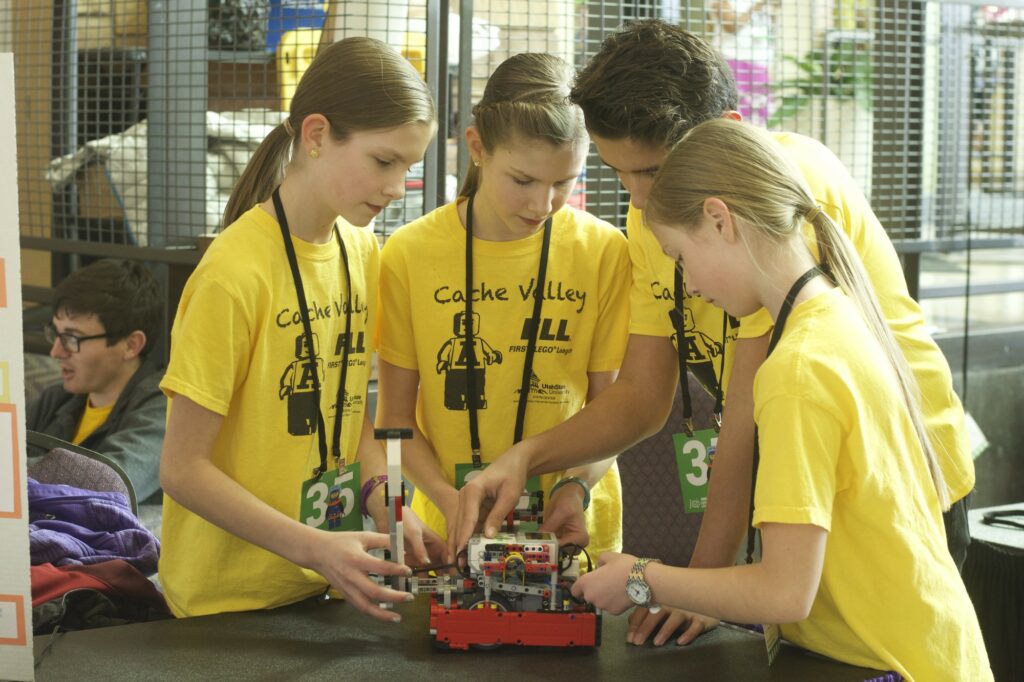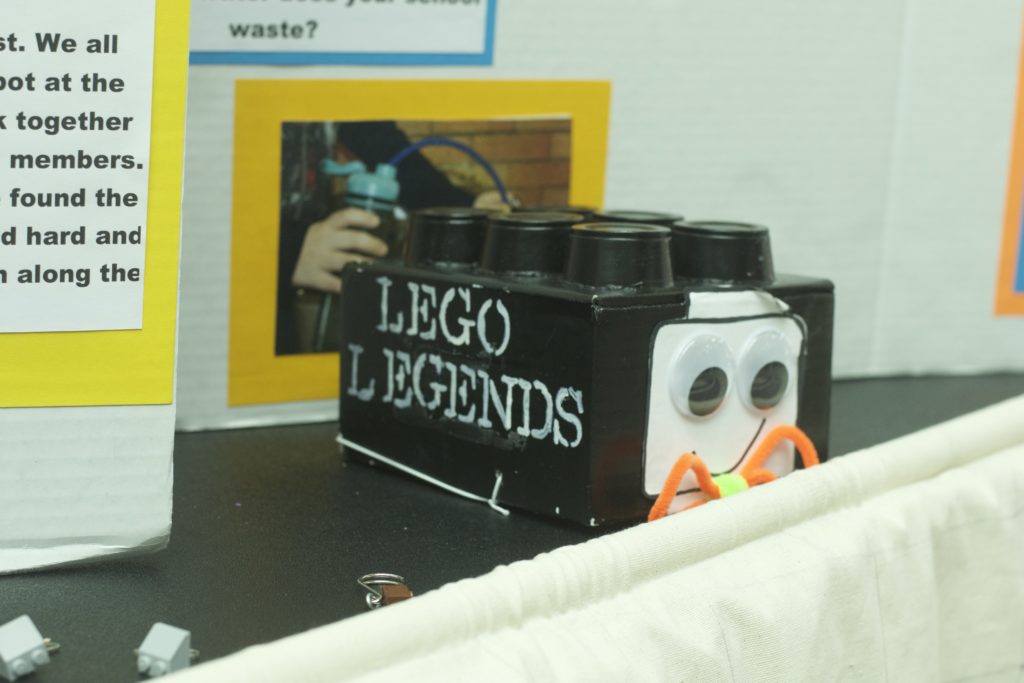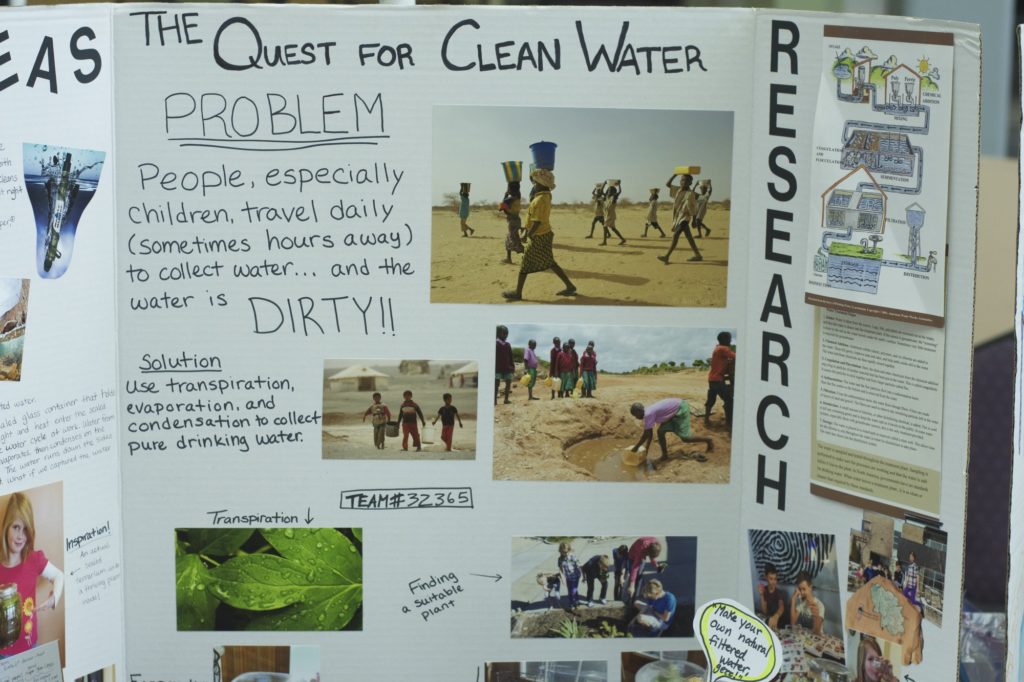
Weber State University hosted the For Inspiration & Recognition of Science & Technology (FIRST) LEGO League on Saturday, Feb. 10, 2018.
Children from Northern Utah, age 9-16, gathered to learn competitively and develop ideas or invent devices that have potential to benefit society.
The competition’s trick was that LEGO bricks must be incorporated into the design. This was an opportunity for young minds to focus on teamwork, express creativity and sway judges with their impressive and intricate inventions.
At 12 years old, Gretta Bohn was one of the brilliant minds behind one of the competition’s ideas. Her invention, Know Flow, is a device you attach to the outside of any residential water supply pipe.
This device uses a microphone to detect when water is running through the pipes irregularly. The idea is that Know Flow will alert the user when water has been running through pipes for a long period of time so that flooding and water damage may be prevented.
“I met with Orem Public Works and found out that floods and water damage can cost people thousands of dollars to fix,” Bohn said. “I just figured there had to be a way to stop floods from happening and pipes from breaking. Like, I would hate to spend $30k fixing something that could have been prevented.”
Additional ideas and designs consisted of filtration systems, robotics, heating and cooling systems and even waste management, all designed and constructed by children.
Although these inventions are complicated, the minds behind them are more complex.
Dozens of devices presented at the competition and other FLL competitions around the country have pending patents. Numerous designs have already been sent to market and are in production today.

“It’s extremely exciting,” Garth Tuck, WSU professor of computer science and Northern Utah FLL director, said. “Seeing the incredible things these kids invent and research. Watching them present without the help of their parents, it’s fascinating and so impressive. How often do you hear kids come up with their own inventions that could actually solve problems and then execute those ideas. I just love it.”
Tuck, who has been FLL director for nine years, believes that the core values the participants are learning will benefit them not only in their professional lives, but in their personal lives as well for years to come. Those core values such as inspiration, teamwork and gracious professionalism are focused on throughout the competition and even awarded.
Children participating in the competition presented their designs to a board of judges and were graded in four areas: presentation, project, core values and robot design.
Three awards were given to participants in each of the four areas, with one grand prize called the champion award. Although the champion award is most coveted, the core value awards are often looked at as the most flattering.
With or without awards in place, FLL gives kids the opportunity to develop values and characteristics that will benefit them for the rest of their lives.














